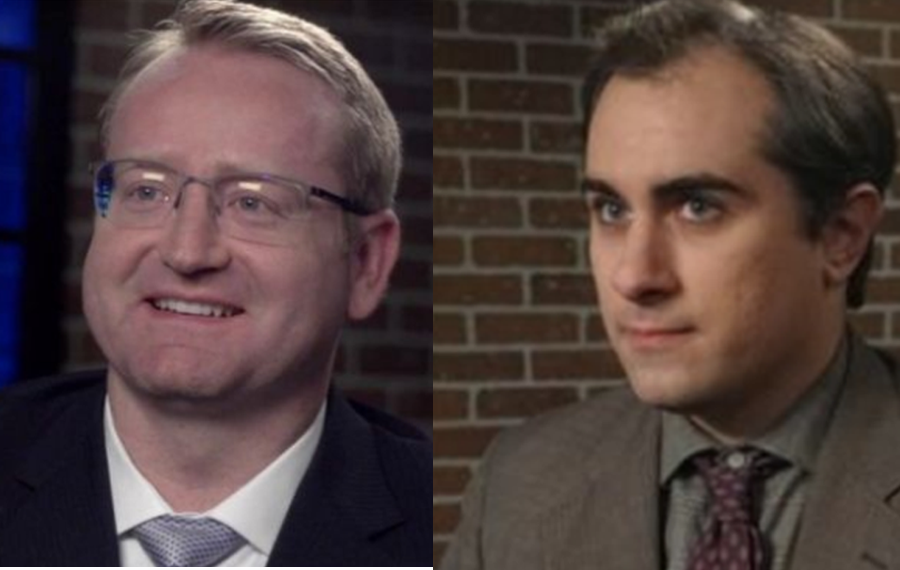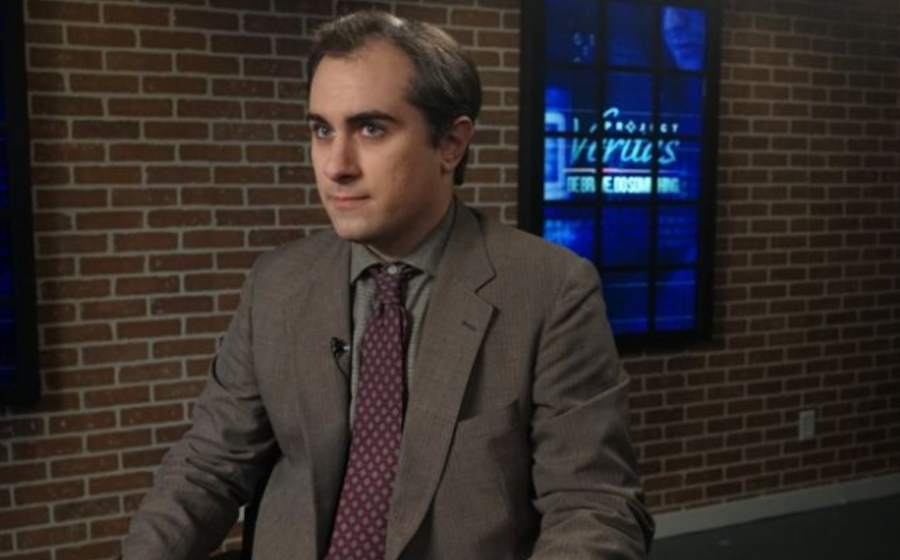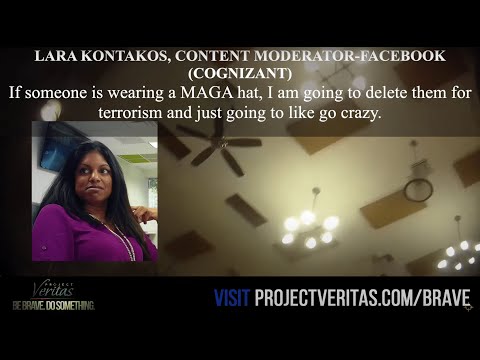EXCLUSIVE: Inside Facebook’s Content Moderator Bias With Ryan Hartwig and Zach McElroy; Two Ex-Employees Come Forward To Project Veritas

NEW YORK, NY – As we close in on the 2020 election in November one of the most hotly-debated topics involves First Amendment rights of free speech on social media platforms such as Facebook and Twitter which now act as gate-keepers to the world’s open dialog. According to recent statistics, the amount of people using social media has surpassed 3.8 billion with trends suggesting more than half of the world’s population will be using social media by the end of this year.
These statistics beg the following question: Should these massive corporations be permitted to employ their own unchecked and in many cases, unbalanced policies often considered to be highly biased against specific groups?
That’s where things get murky, as the First Amendment does indeed guarantee free speech, but not necessarily a specific platform to practice it. The framers and founders of the Constitution surely never imagined the technologies we have at our disposal today including the massive power it holds, and they surely didn’t legislate for it. Even modern day politicians are late to the game when it comes to keeping people’s rights protected online.
Now, substantiating the many claims of bias, two ex-employees of a company contracted by Facebook to perform content moderation duties have revived this debate when they made headlines by violating their NDA agreements in order to speak on the issues and delivering to investigative journalist James O’Keefe of Project Veritas, recorded audio and video footage of practices they allege are ‘self-serving’ and silence conservative voices on their platform, and in some instances even allow calls of violence against them.
Ryan Hartwig resides in Phoenix, Arizona, and first started in March 2018 as a bi-lingual content moderator for Facebook through Cognizant, the IT company that was sub-contracted by the social media giant. That project ran through February 28, 2020, at which time Hartwig transferred to a call center; however, he recently resigned to be able to devote more time to what has inevitably become his current project – spreading the word about his experiences with Facebook.
“From the very beginning at Facebook I noticed bias, starting with my training,” said Hartwig, who identifies as a patriot, a conservative, and an advocate for free speech. “My trainer was very openly political and was always talking about how much she loves president Obama.”
Having a degree in Spanish, Hartwig was initially assigned to monitor Facebook posts that were flagged for policy violations by users in Southern American countries; he claims to have noticed some minor issues while in that position, but it wasn’t until he started moderating English-language posts that he began noticing what he considered to be serious issues.
“I noticed that people were allowed to attack straight white males for things like not supporting LGBT. Normally attacking any person for their race, gender, or sexual orientation would be a violation, but if you were white, it was allowed,” he said. “Also, a teenage Trump supporter wearing a MAGA hat was attacked on video in a restaurant in Texas, and Facebook allowed it to be deleted right away, citing its ‘child abuse’ policy. In contrast, a conservative Australian senator, Fraser Anning, was filmed being assaulted by a minor who hit him in the head with an egg, and the senator turned around and sapped him. That video also violated the ‘child abuse’ policy but was allowed to remain.”
Hartwig is surely not alone in coming forward with instances that suggest an uneven playing field when it comes to content moderation which is carried out by Facebook’s contractors. First was his co-worker Zach.

Zach McElroy of Tampa, Florida, was also employed as a Facebook content moderator through Cognizant, working for them from January 2019 until February 2020, at which time he was laid off when the office he worked at was closed.
McElroy, who also identifies as a conservative, reported similar stories to Hartwig and was first to come to O’Keefe’s of Project Veritas to expose his tale. McElroy said he also noticed a distinct “liberal bias” right away during training, and once he actually started his moderating duties, he noted that he observed a very loose interpretation of the rules when it pertained to the posts of certain conservative groups and individuals.
“There’s two issues – policy and sometimes individual content moderator going rouge and deleting content that they personally have an issue with. But as far as policy is concerned, that’s something I noticed immediately,” he said. “The most notable highlight is that they have an exception in their violence policy for calls of violence against people in their ‘dangerous people and organizations’ list. So if Facebook determined that you should be on this list – say, [comedian and political commentator] Gavin McInnes, who is on it – it’s actually okay for people to call for violence against you.”
McElroy claimed that Facebook addressed the so-called ‘dangerous individuals and organizations’ list and removed it from their public policy after it was reported in the media [still public when we checked], but said internally little has changed by way of directives given to content moderators. Violence, he said, is still allowed to be directed at specific parties with impunity.
Both Hartwig and McElroy – who did not know one another while at Cognizant, recently met for the first time on the interview circuit – both said that they made the decision to contact Project Veritas, a conservative activist group that uses disguises and hidden cameras to “uncover supposed liberal bias and corruption” in the media and politics. The organization was receptive to Hartwig and McElroy’s stories and provided them both with personal surveillance equipment that they used to clandestinely document their findings, which were later released in the form of viral sting videos.
“Facebook didn’t allow cell phones or even pens and paper on the work floor…they were very serious about keeping the information there secure,” he said. “But when I went to Project Veritas with my idea about exposing what I saw, they were able to supply me with the cameras I needed to document things, with the most substantive I caught on video being the ‘calls to violence’ issue.”
“Probably the money-shot for me,” Hartwig said of his undercover video footage, “was when my co-worker talked about being willing to accept an $8 million bounty that Iran had put out to assassinate President Trump…she actually said ‘that would be a bargain.’ I was luckily wearing my camera that day.”
Both individuals have also asserted that Facebook uses other means to target and silence conservative viewpoints, including allegedly tailoring the platform’s algorithms to that very purpose, among other methods. Since recently coming out with their allegations – including the video sting footage – Hartwig and McElroy have both been conducting numerous interviews and making appearances on the subject, with more scheduled to come in the future.
Hartwig and McElroy both claim they have not heard anything from either Facebook or Cognizant since their Project Veritas video was released.
The issue of bias in social media is a tricky subject. While some have indeed reported an anti-conservative bias on social media, there have also been studies that illustrate how social media accounts representing conservative media have greater performance than many other news groups. On the opposite side of the spectrum, there have been members of the LGBTQ and African-American communities on social media which have claimed that their speech has been censored as well.
In addition, a $50 million free speech lawsuit against Google by former Democratic presidential candidate Rep. Tulsi Gabbard in 2019 was dismissed by California’s Central District Court. The rejection penned by Judge Stephen Wilson in that case contained verbiage that bolstered the claims that even if social media companies are indeed cherry-picking groups on their platform to censor – for any group, conservative or liberal – there may be little constitutional recourse as it relates to free speech.
In the same time frame as Gabbard’s suit, conservative group PragerU sued YouTube for alleged free speech violations, and also received a dismissal for the same reason.
McElroy said that if a resolution couldn’t be found on constitutional grounds, that he would be a proponent of a legislative solution of some kind.
“I’m normally not one for more regulation, but frankly regulation might be needed,” he said. “I think we’re talking about Section 230 of the Communication Decency Act is relevant, which I think is good because I think social media companies have been in violation of it for years. I’m not sure, but perhaps that’s the route to take.”
The section of the 1996 Communications Decency Act that McElroy referred to currently mandates that social media platforms are not legally considered the publishers of the statements that third parties post. The critical question however is, at what point does a social media platform become the “publisher,” when they intervene on what, and potentially part of what, does not get published.
Hartwig, meanwhile, noted that he has received a lot of positive feedback from supporters on Twitter, and said that the reason he publicly came out on this issue is to ensure free speech on social media across the board, regardless of any and all political leanings.
“You might think this is a partisan issue or people might attack me and say this is a right-wing hit-job, but think about it this way- in ten years, the roles could be reversed, the tables could be turned. Leftist people could be censored,” he said. “That said, I thought it was my civic duty to come forward, and having my actual name out there puts a face to the movement. I’ve gotten some hate messages from former co-workers, but had a lot of people give me support as well.”
The Published Reporter reached out to Facebook for comments on Hartwig and McElroy’s bias allegations, but has not heard back as of press time. We will update this article if that changes. However, when similar allegations arose against the company in 2016, they denied that they were true. Not sure how they will do disputing the video evidence that came to light.
Full Interview with Facebook Content Moderator Zach McElroy:
Full Interview with Facebook Content Moderator Ryan Hartwig:
Hartwig and McElroy both have established GoFundMe pages to help them with living costs and other expenses and have enjoyed a great deal of community support. If you wish to add to it and contribute in any way, you can do so via the following links:





Comments are closed.